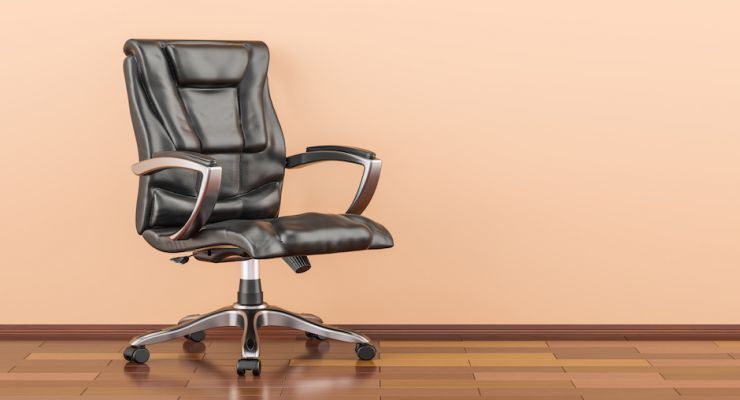If you are one of the millions of Americans in the workforce that spend their days sitting behind a desk, you may have previous experience with an uncomfortable desk chair. However, rather than simply replacing it, many of us choose to ignore visible signs that it’s time for a replacement. An old, worn out desk chair doesn’t just interfere with comfort, it can also negatively affect productivity, efficiency, and darken your mood as the day progresses. Sometimes it’s hard to know when replacing your chair is a matter of necessity or only an issue of comfort. This list will help you know where to place a new office chair on your list of priorities.
You need a new desk chair if…
You’ve had it for longer than five years
Though five years doesn’t seem like a long time, when it comes to something that is used for hours on end every day, five years can quickly add up. Time takes a toll on any furniture, so it’s a good idea to at least thoroughly inspect your outdated chair once it has reached the five-year mark. Most likely, you will discover numerous convincing reasons to upgrade. Are you finally ready to take a trip to the dumpster and ditch your creaking desk chair from 2006?
The padding is worn down
Even though your chair was designed to be used, eventually even the best chair padding gets worn down. This can negatively affect your lower back, tailbone, and even influence your posture; causing painful spine problems and discomfort.
It’s falling apart
Though this one should be obvious, many people chose to ignore the fact that their chair is being held together by nothing more than a roll of duct tape and a bottle of superglue. A few rips small rips are nothing to be concerned about, but if your desk chair does not roll properly, or is missing an entire armrest, it’s probably time to search for other options.
You experience pain after using it
Desk chairs are not designed to leave your body with an excess of aches and pains, but after a chair has passed its prime, it may actually start causing harm. Listen to your body. If you suddenly are experiencing back pain and hadn’t been before, your chair may be to blame. You could also have simply purchased a chair that isn’t right for you, and it may not even be old. Desk chairs are not a one size fits all product, and it may take some trial and error for you to discover your optimal chair.
You are tired of sitting
Though it doesn’t make sense at first, sitting for hours on end can become exhausting and even dangerous. You may experience swelling in various parts of your body, joint, and muscle pain, or even develop a deadly blood clot. Consider if a standing desk might be a better option. Standing desks, or hybrid desks, are all the rage these days and, as the name implies, allow the user to work while standing. It may just be time to ditch your desk chair altogether.
Tips to help you pick the perfect desk chair
Material
It is incredibly important to select an appropriate material for your desk chair. You will have to choose from options such as leather, vinyl, and mesh. Though leather looks classy and is a popular choice for high-end offices or visible home offices, it isn’t a fantastic material for those hot summer months when it holds a little too much heat. You may experience the same problem with vinyl, and for that reason, many are turning to mesh as the preferred option. It is easy to clean, comfortable and incredibly breathable.
Height and width
Take into consideration your height and breadth when choosing an office chair. You don’t want to get something that doesn’t even allow your feet to touch the floor, while you also don’t want a chair that cannot accommodate you if you have broad shoulders, for instance. One way to solve this issue is to test the chair before you buy it. Though online shopping saves time and effort, you’ll probably want to try sitting in your chair before investing the money.
Price vs. Comfort
When it comes time to select your office chair, be ready and willing to invest, not only in the chair but in your health as well. Don’t sacrifice comfort and quality simply for a cheaper price tag. Yes, it is essential to stay within a price range and buy what you can afford, but be sure not to select a clearly inferior model merely because it’s less expensive.
-Susan Patterson

